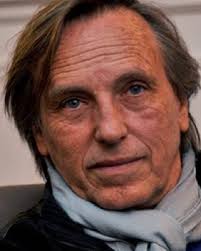The Halimi affair, which gripped France in the winter of 2006, has been brought to the big screen. Alexandre Arcady’s 24 Days will be presented by the Toronto Jewish Film Festival’s Chai Tea & A Movie series on Sunday, Nov. 16 at 1:30 p.m and 4:30 p.m.
Arcady’s fast-moving, suspenseful film is based on a book by Ruth Halimi, whose son, Ilan, was kidnapped and tortured by a gang of Africans and North Africans. The case, which unfolded in Paris over a period of a little more than three weeks, captivated the country and forced the French, yet again, to reflect on the demon of antisemitism.

Arcady tells the story from Ruth Halimi’s viewpoint. As the film opens, she confesses that her life suddenly fell apart after learning that her beloved son had been abducted and was being held for ransom. The kidnappers, led by a Parisian-born African petty criminal named Youssuf Fofana, used a pretty woman to lure Ilan — a Jew of Moroccan descent — to a place where they summarily kidnapped him.
The first few minutes of the film unfold in a cozy apartment on a Friday night where Ruth (Zabou Breitman), Ilan (Syrus Testud) and his sister, Yael (Alka Balbir), gather for a Sabbath meal. Ilan, a salesman in his mid-20s, bids them good bye as he leaves to meet a woman for a date. Ruth worries when he doesn’t return.
The Halimis are thrown into a state of panic when they receive an e-mail from the gangsters informing them that Ilan is in their hands. Attached to the message is a graphic photograph of Ilan. He’s blindfolded and a gun is pointed at his head. The kidnappers demand a ransom of 450,000 euros. Before Ilan’s family can regain its composure, his girlfriend gets a phone call from the criminals demanding 100,000 euros immediately. It’s the second of many threatening calls they’ll receive.

At this juncture, Ilan’s father, Didier (Pascal Elbe), who’s divorced from Ruth, steps into the drama. He’s confident that Ilan will be found. The police detective advises him and Ruth to be patient and how to conduct themselves during the negotiations. In the next few scenes, the kidnappers continue calling the Halimis. The calls are coming from the Ivory Coast and the suburbs of Paris, where many Muslims live.
Motivated in part by antisemitism, the kidnappers advise Didier to enlist the financial support of the Jewish community so that the random can be paid. “You stick together,” says Fofana, who’s portrayed as a thug.
As the days pass, Ruth and particularly Yael grow desperate, fearing that Ilan will be killed by his abductors. They’re ready to do what it takes to free Ilan unharmed, but the police are opposed in principle to ransoms to resolve such cases.
Thanks to a credible script, 24 Days unfolds both like a riveting documentary and an intensely personal drama. The cast delivers the goods in exemplary fashion.

The issue of antisemitism surfaces and resurfaces. The kidnappers refer contemptuously and stereotypically to Ilan’s Jewish background, while the police grudgingly concede that anti-Jewish bias was an “aggravating circumstance” in his tragic abduction.
24 Days raises important issues and presents them clearly.